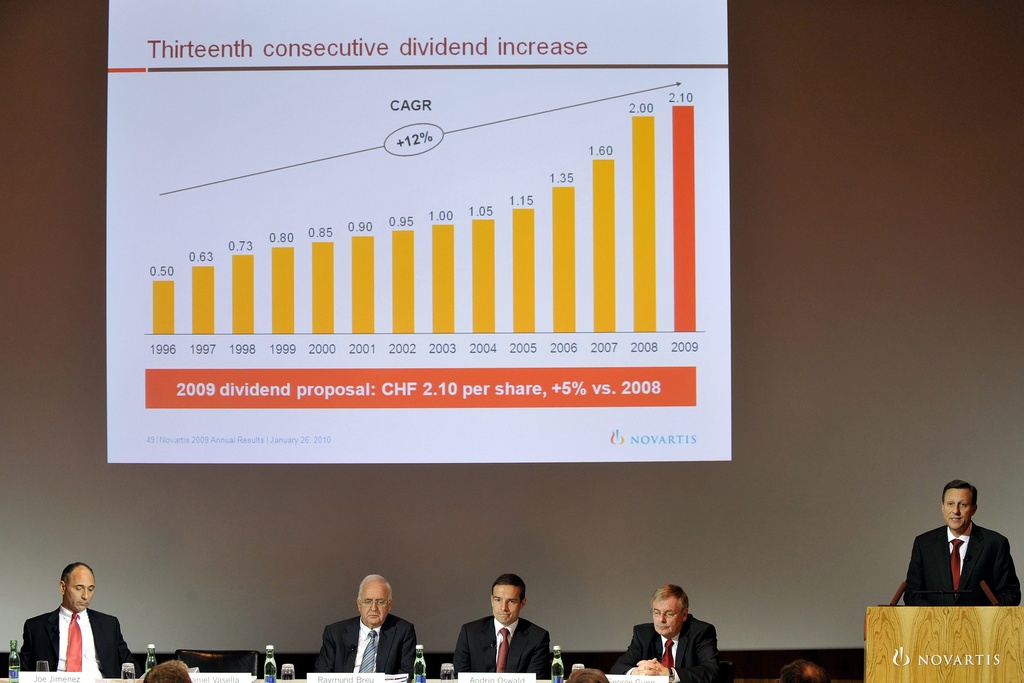Swiss economy finds competitive advantage

A year ago Switzerland was the whipping boy of Europe, with its financial sector in danger of buckling under the strain of a global assault on banking secrecy.
But the growing strength of Asian economies coupled with structural weaknesses in Europe have helped Switzerland gain a position of relative competitive strength over neighbours.
Swiss exporters still face problems associated with the strengthening franc and a weakening of their most important market – the European Union. But a steady diversification of exports away from the EU towards emerging economies is one of the key reasons Switzerland is enjoying comparatively strong economic growth and low unemployment rates.
Professor Stéphane Garelli, head of Lausanne’s IMD business school’s World Competitiveness Center, believes a national vote against Switzerland joining the European Economic Area in 1992 was a “blessing in disguise”.
“A lot of businesses, particularly small and medium sized enterprises, were frightened that the European market would become closed to Switzerland one form or the other,” he told swissinfo.ch. “It forced them to look outside of Europe and diversify their exports to Latin America and Asia.”
After establishing good contacts with these new regions, Switzerland is now able to cash in on the good times as the emerging economies increase by up to ten per cent a year compared to growth rates of less than two per cent in the EU.
Asia absorbs exports
Although the EU still accounts for 60 per cent of Swiss exports, trade figures for the first nine months of 2010 show the growth of goods and services to emerging economies outstripping those to Europe.
Exports to the EU had grown by 4.2 per cent up to the end of September, compared to an increase of 25 per cent to China, 46 per cent to Singapore, 26 per cent to Russia, 21 per cent to Brazil and 19 per cent to India.
While Switzerland is not alone in increasing its export drive to emerging economies, Swiss National Bank chairman Philipp Hildebrand highlighted in a recent speech that the value of exports to China has risen threefold since 2001.
Stripping out the powerful “tiger economies” – mainly China and India – Swiss exports to emerging Asian economies has grown six per cent since 2000 compared to an EU average of 4.5 per cent.
“While many European countries intensified their trade relations with the emerging economies of Eastern Europe as part of the EU’s expansion eastward, Swiss exporters focused more on the Asian market,” Hildebrand said.
Competitors losing edge
Hildebrand also noted that Switzerland’s traditional strength in producing high value, high quality, consumer goods has also helped the country withstand the worst ravages of the global recession. The demand for watches, precision instruments and pharmaceutical goods is less volatile during bad times than capital goods, such as machinery and cars, he noted.
But while Switzerland is now faring much better than many EU countries, barring Germany, the Netherlands and Scandinavian nations, Garelli believes the gap in performance can be attributed to countries like Greece and Ireland losing their competitive edge as opposed to Switzerland making significant gains.
“We are in a situation where it is the rest of Europe collapsing rather than Switzerland doing better than before,” he told swissinfo.ch.
“Switzerland is one of the strongest countries in Europe, but can it be strong alone? Even if we have diversified trade to emerging markets we still depend on most of our business with Europe.”
Strong franc benefits banks
But one positive effect of the economic frailties of Greece and Ireland, leading to their bail-outs in recent months, has been that attention has focused away from the issue of Swiss banking secrecy, Garelli added.
“Switzerland is a small country and not the first priority on the minds of many people, and there are so many other issues confronting large governments that they have a tendency to forget about us relatively quickly,” he said.
In the meantime, the reforms to the Swiss financial system that are still in progress – such as renegotiating double taxation agreements – can only serve to strengthen the system by removing pressure, Garelli argued.
“Switzerland is a world leader in many other areas – food, chemicals, pharmaceuticals and watch making – and these industries are world leaders without benefiting from secrecy laws,” he said.
And while the strong franc may adversely affect exporters, the safe haven currency appears to be attracting a steady flow of capital to Swiss banks, he added.
In the first nine months of 2010, Switzerland exported goods and services worth SFr143.5 billion ($148 billion) – up 7.5% on the same period last year.
Imports rose by 8.1% to SFr128.5 billion, leaving Switzerland with a net trade surplus of nearly SFr15 million.
Exports increased by 4.2% to the EU compared to a growth of nearly 15% to Asia and the Middle East and 13.4% to Latin America.
In September, the State Secretariat for Economic affairs (Seco) pushed up its gross domestic product (GDP) growth forecast for 2010 to 2.7% from a previous estimate of just 1.8%.
Third quarter GDP growth was 3% higher than the same period a year ago and an increase of 0.7% on the previous quarter.
The KOF Swiss Economic Institute and the BAK Basel economic research unit have forecast 2.7% annual GDP growth for 2010.
However, the growing problems in Europe are expected to slow Swiss economic growth next year.
Seco downgraded its prediction from 1.4% to 1.2% for 2011 while KOF expects 1.8% and BAK Basel 1.7%.

In compliance with the JTI standards
More: SWI swissinfo.ch certified by the Journalism Trust Initiative





You can find an overview of ongoing debates with our journalists here. Please join us!
If you want to start a conversation about a topic raised in this article or want to report factual errors, email us at english@swissinfo.ch.